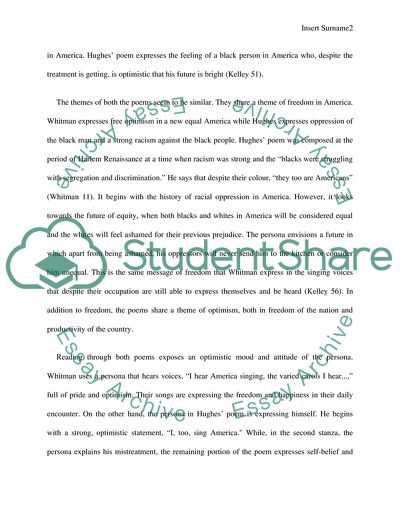Walt Whitman's Poem I Hear America Singing and Langston Hughes's Poem Literature review Example | Topics and Well Written Essays - 1500 words - 1. https://studentshare.org/literature/1814521-compare-at-least-two-poems
Walt Whitman's Poem I Hear America Singing and Langston Hughes'S Poem Literature Review Example | Topics and Well Written Essays - 1500 Words - 1. https://studentshare.org/literature/1814521-compare-at-least-two-poems.


